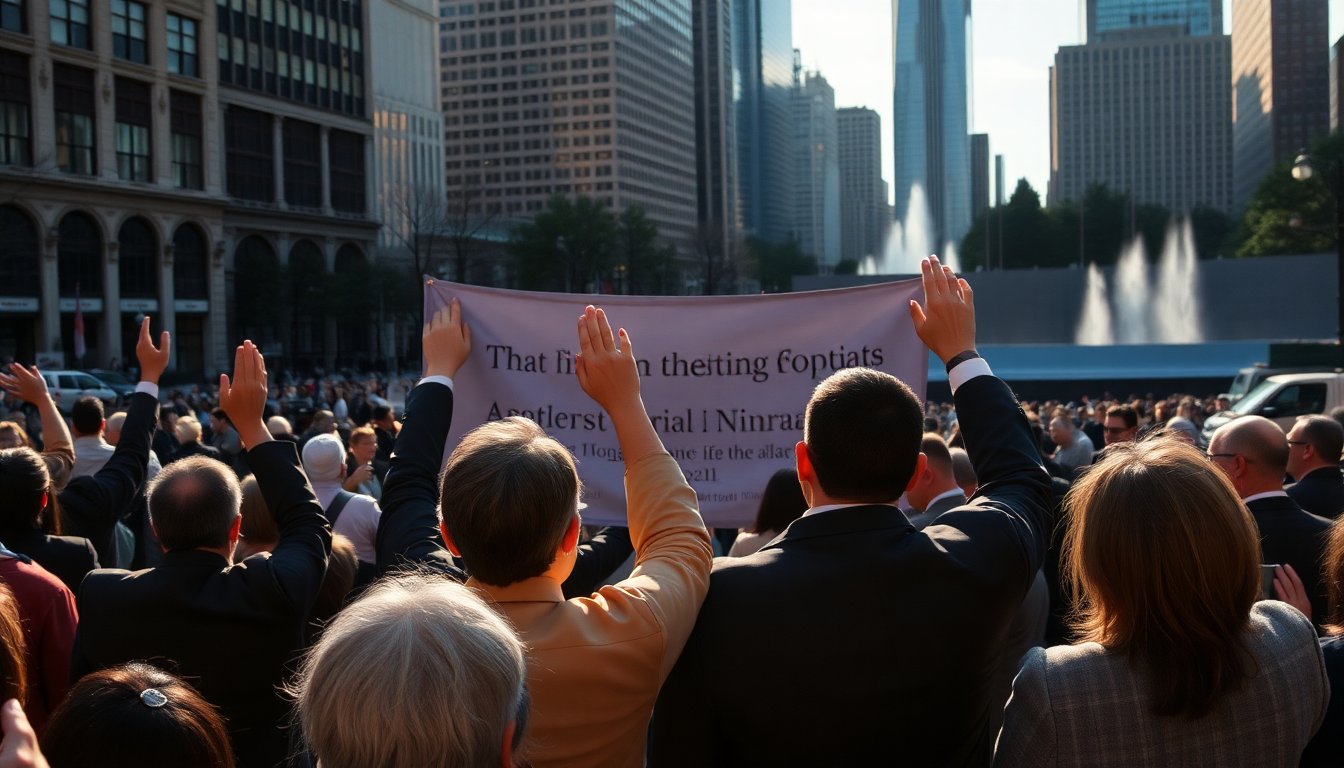Table of Contents
During a recent memorial ceremony in Manhattan marking the tragic events of September 11, 2001, a poignant reminder emerged about the lasting effects of political discourse. Mike Weinstein, a 61-year-old relative of firefighter Stephen Belson, who heroically lost his life during the rescue efforts at the World Trade Center, directed pointed criticisms towards New York City mayoral candidate Zohran Mamdani. Weinstein emphasized the urgent need for political leaders to unequivocally denounce phrases that can be interpreted as inciting violence, such as “globalize the intifada.”
Political Accountability in Mourning
Weinstein’s call to action resonated deeply as he urged politicians to explicitly renounce terror and violence. During the ceremony, he stated, “When political candidates and public officials refuse to condemn global terror and phrases such as ‘globalize the intifada,’ they are inviting another 9/11, God forbid, and they continue to bring daily fear for all New Yorkers.” His words reflect a broader concern over the implications of political rhetoric and its potential to incite violence, particularly in a city that has endured the scars of past tragedies.
As the years progress, the memory of 9/11 serves not only as a solemn reminder of loss but also as a call for vigilance against rhetoric that can lead to real-world consequences. Weinstein poignantly remarked, “Twenty-four years later, we need all political candidates…to speak out against terror and unite as freedom-loving New Yorkers.” This plea underscores the importance of unity and condemnation of violence in the political arena, especially as candidates seek public office.
The Controversy of Political Rhetoric
The phrase “globalize the intifada” has sparked significant controversy, often criticized as an anti-Zionist slogan that calls for international support for Palestinian resistance against Israel. Critics argue that it can be interpreted as a call for violence against Israelis and Jews, making the refusal to condemn such language particularly contentious.
Throughout his campaign, Mamdani has faced scrutiny for his reluctance to denounce this phrase outright. While he has recently expressed a desire to distance himself from the language, his journey towards a more conciliatory stance raises questions about the influence of political pressure and the need for candidates to align their rhetoric with the values of their constituents. During an interview, Mamdani acknowledged the gap between the slogan’s intention and its harmful impact on many Jewish New Yorkers, highlighting the delicate balance politicians must navigate when addressing complex issues.
Lessons from the Past and Future Implications
As the nation reflects on the events of 9/11, it serves as a reminder of the need for clarity and responsibility in political discourse. Weinstein’s remarks underscore the critical nature of this dialogue, especially as New Yorkers continue to grapple with the legacy of violence that has shaped their city. By urging politicians to take a firm stance against terror, he taps into a collective yearning for safety and unity.
In an age where political language can quickly escalate tensions, the importance of thoughtful and responsible communication cannot be overstated. As candidates like Mamdani navigate their campaigns, the imperative to engage with such issues thoughtfully and sincerely will remain paramount. The hope is that through reflection and accountability, the specter of violence can be mitigated, allowing for a future where freedom and safety are assured for all.


